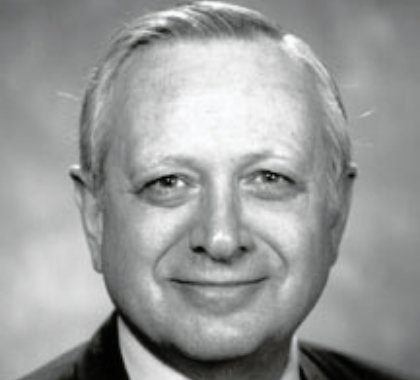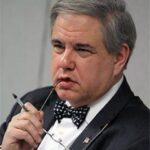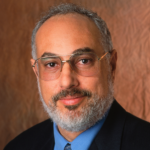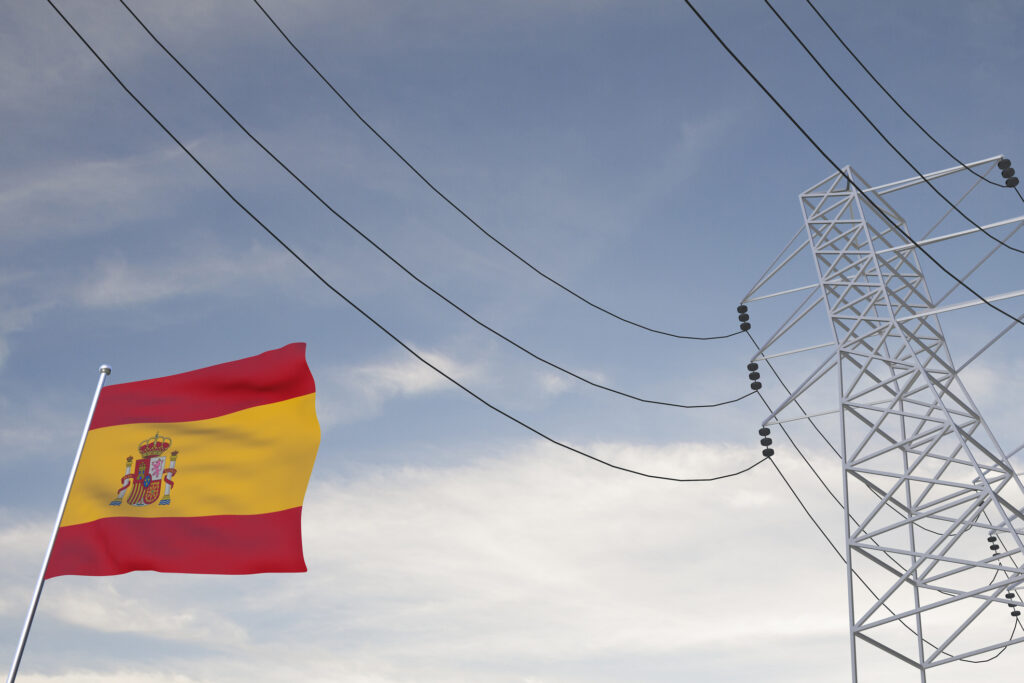

See, especially: Why Regulate? New Applications of the ‘Johnston Test’ by Joseph Bast.
James L. Johnston passed away on January 21, 2022. He was 86. I’m proud to say he was a friend for nearly four decades.
Jim’s bio on The Heartland Institute’s website identifies him as a founding member of The Heartland Institute’s Board of Directors and senior fellow for energy and regulatory policy. From 1975 until his retirement in 1993, Jim was an economist at Amoco Corporation. More precisely (and Jim always favored precision over concision), he worked for Standard Oil Company of Indiana prior to 1985, when Standard Oil became Amoco. (Just FYI, shortly after Jim retired, Amoco merged with BP becoming BP Amoco briefly and then just BP. The “Amoco” name now refers only to a brand owned by BP.)
Before he joined Standard Oil, Jim was an economist with the RAND Corporation, the Institute for Defense Analyses, and the Secretary’s Office of the U.S. Treasury. He earned Bachelor’s and Master’s degrees in economics from the University of Southern California and did graduate work toward a Ph.D. in economics at UCLA. (I’ve got Jim’s hand-written notes from five econ courses he took at USC.)
I first met Jim at a meeting of Dave Padden’s “Loop Libertarian League” in 1984. He was in the room when Scott Hodge, with Padden’s encouragement, floated the idea of creating a nonprofit libertarian think tank based in Chicago. Jim had previously pledged $5,000 to the Illinois Libertarian party to hire a full-time staffer and was disappointed that it hadn’t acted. So he donated that amount instead to the fledgling Heartland Institute.
Jim served on Heartland’s board of directors continuously from its founding until his passing. He was an active board member, attending nearly every meeting and serving as treasurer and vice president. He could be counted on to insist that Heartland focus on research and not just advocacy. Its mission, he often said, was to discover and not merely to promote free-market solutions to social and economic problems. And he signed thousands of checks and reviewed hundreds of bank statements.
Jim also attended weekly Heartland staff meetings for nearly the entire history of the organization, even after it moved from downtown Chicago to suburban Arlington Heights. He would often show up with iced coffee for staff and always with advice on issues to address and the best ways to address them. At quarterly board meetings he reported on what he heard and saw at staff meetings, becoming an invaluable bridge between the board and staff.
In his later years, Jim was a beloved fatherly and then grandfatherly figure to Heartland staff and even to younger board members. He would report the many conferences he attended (and often spoke at), the trains he rode, and later the scores of his grandchildren’s soccer games, and always his wife Tina’s important work for the Red Cross. He never failed to praise the staff for their latest successes and counsel them on the importance of being truthful and faithful to fundamental economic principles.
But Jim was not always that way. In his younger years, Jim didn’t suffer fools gladly.
One of my earliest memories of Jim was having lunch with him in the executive dining room of the Amoco Building (now the Aon Building) in downtown Chicago. As I recall the conversation, he wanted to know why I opposed a particular regulation, and I answered that it would result in businesses passing along the cost of compliance to consumers. Dumb, dumb, dumb. “Cost does not determine price!” he practically shouted. About a hundred heads (it seemed at the time) turned to watch this senior economist berate a hapless young man who obviously didn’t know the first thing about economics. The criticism was loud and sustained for what seemed to be an hour. (I’m sure it was a lot less than that.) Nothing I said was right, and I couldn’t find anything wrong in anything he said. Today, nearly 40 years later, I remember that lunch with paranormal clarity.
(Some people will tell you the way to change someone’s mind is to be soft-spoken, to ask questions, and to not be confrontational. Jim taught me another way: Embarrass the hell out of them in front of a room full of strangers. You may change their lives.)
Like all great economists (and scientists), Jim enjoyed being a contrarian. He mastered the technique of making counterintuitive claims while leaving out the key fact or idea that would enable the listener or reader to agree with him. That fact or idea was often buried in the penultimate paragraph of his essays. Once I learned this trick, much of economic literature became intelligible to me and Jim became much easier to edit… though he didn’t always like my changes.
While other economists were talking and writing excitedly about “market-based regulation,” such as cap and trade for emissions and electric utility deregulation, Jim was warning that politicians and bureaucrats are unlikely to correctly diagnose a problem, impose the right price on negative externalities, and design and administer efficient programs. Any one of these shortcomings would be enough to tank the entire enterprise. He wrote withering criticisms of California’s RECLAIM system and proposals to deregulate (actually, restructure) utilities (including a delightful essay for Crain’s Chicago Business titled “Is ComEd a Good Pig?”) and to tax “carbon.” Two decades later, most economists finally caught up to Jim.
One of Jim’s responsibilities at Amoco was advising the company on its risk management strategies. He became expert on the use of derivatives such as futures and options to protect the company from price and supply volatility. From that experience, he discovered how businesses and individuals routinely use derivatives or derivative-like techniques (such as vertical integration) to protect themselves from the risks that regulations are allegedly in place to manage. The emergence in the 1980s and 1990s of robust markets for derivatives, Jim argued, made many regulations unnecessary and thus ripe for repeal. Ditto vertical integration, which Jim said was often wrongly diagnosed as a sign of monopoly.
Jim’s insights into regulation constituted a new theory of regulation, one that answered questions such as why some industries are regulated and others are not and why the supply of and demand for regulation change over time. In a 2010 Heartland Policy Brief I summarized Jim’s theory of regulation as follows:
Industries are most often regulated when three conditions are present: the product or service is subject to substantial shifts in supply and demand, supply reliability cannot be achieved through precautionary stocks or other market techniques, and substantial social costs are incurred when supplies are interrupted. The intended effect of regulation in such cases is to improve the stability of supply by encouraging extra investment in reliability.
Johnston’s theory of regulation, I wrote,
provides three things missing from the other theories: a criteria or test for determining when regulation may be necessary, a measurable objective for regulation (reducing the social costs caused by the interruption of supply of key goods or services), and a place to look for ways to avoid the need for new regulations or for signs that an industry has outgrown the need for existing regulations (when new technologies or market institutions emerge that can stabilize prices without government mandates).
I showed how Jim’s theory constitutes a test to determine whether existing regulations are still necessary or could be replaced with new market solutions. Similarly, proposals for new regulations could be subjected to the Johnston Test to determine if they are really necessary or not. DuckDuckGo and Google searches just now reveal the “Johnston Test” hasn’t gained much traction among policy wonks, but it’s out there for others to eventually find and use.
Jim Johnston was an advocate for freedom, a fine economist, a philanthropist, and a leader. He was also a good friend. He inspired at least three generations of policy analysts to look closely at conventional thinking, even by “free-market economists,” and find novel insights into how the world really works. He liked to say “for every complicated problem, there is a simple solution… and it is wrong.” The truth is often complicated and counterintuitive. Thank you, Jim, for helping so many of us find it.
— Joseph Bast, founding president of The Heartland Institute.
With sorrow I advise of the death on January 21 of our friend and colleague Jim Johnston, long a director and the treasurer of the Heartland Institute.
Jim was a “political economist” of the old school, who spent a lifetime practicing the “dismal science” professionally in private industry. He was a passionate defender of free markets and of competition, and a knowledgeable source of information about economics and about leading economic thinkers, particularly the numerous luminaries of the 20th century who were among his personal friends.
He was, I believe, the longest-serving director of The Heartland Institute in history, with the possible exception of Joe Bast. In announcing his death, the family asked that, in lieu of flowers, contributions be made, instead, to Heartland and to our allies at the Acton Institute.
A firm schedule of obsequies has not yet been sent. According to the family’s announcement, we know that a requiem Mass will be offered at Saints Faith, Hope and Charity Church, 191 Linden Street, in Winnetka, Illinois, 60093, but we do not yet know when.
I append below the announcement as it has been made thus far. I will supply more information as soon as I know it.
May the memory of Jim Johnston forever be as a blessing.
— Joseph Morris, chairman of the Board of Directors, The Heartland Institute

Up until the past several months, Jim would regularly travel to the Heartland office to meet with staff and provide instructive but gentle guidance. He would participate in staff meetings like he was simply one of us staff. Jim was a role model and an inspiration and one of my all-time favorite people at Heartland. All of us at Heartland will miss him terribly, and already miss him terribly.
Rest in peace, serenity, and joy, my good friend.
— James Taylor, president, The Heartland Institute

I first met Jim Johnston nearly 44 years ago at the very beginning of my career in the Public & Government Affairs department at what was still known officially as Standard Oil Company (Indiana). My manager introduced me to Jim my very first week there and told me he was to be my go-to source in the Economics department.
The word “mentor” gets over- and misused too often, but he fit that role to a tee. I often felt everything I learned in advocating a position I learned from him. To wit, at a time when too many in corporate America checked their principles at the door on issues such as natural gas decontrol, he was steadfast in the position decontrol would lead to greater supplies and lower prices. He was right then and right often.
When I wrote the forward to my book in 1998, my editor told me to mention those who had, per the Jewish shehecheyanu prayer, brought me to that point. I put Jim in there and described him as a “tireless free market polemicist.” I never told him I did that, but he later saw it in a bookstore (remember those?) and was touched. I offer it as a fitting epitaph.
— Howard Simons, policy advisor, The Heartland Institute

James L. ‘Jim’ Johnston, age 86, of Wilmette, IL. Beloved husband of Giustina ‘Tina’ Johnston nee Ziliotto. Loving father of Chris (Angel) Johnston, Cathy (Chris) Fasano, and the late Cynthia Johnston. Proud grandfather of David, Margaret, and Peter Johnston; Patrick (Charlotte Wood) and Cecilia Fasano.
Funeral Mass date and time pending at Saints Faith, Hope and Charity Church, 191 Linden Street, Winnetka, IL 60093.
A link to virtually attend the funeral Mass will be posted here shortly.
Interment private.
In lieu of flowers, memorials may be made to:
Acton Institute
98 East Fulton Street
Grand Rapids, MI 49503
or
The Heartland Institute
3939 North Wilke Road
Arlington Heights, IL 60004
Info: donnellanfuneral.com or (847) 675-1990
Source: https://www.donnellanfuneral.com/obituaries/James–L-Jim-Johnston?obId=23768100








